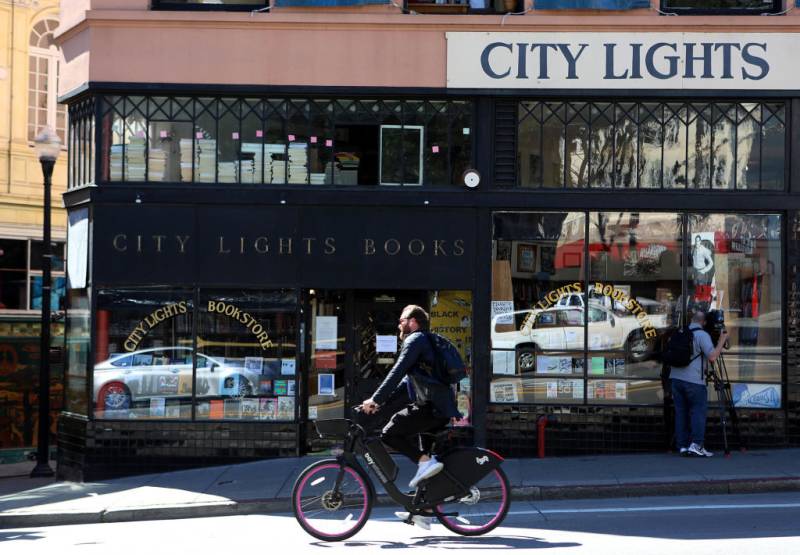Updated 5:00 p.m. Monday
City Lights management has officially recognized its first employee union, confirmed Stacey Lewis, vice president and director of publicity, marketing and sales at the world-famous independent bookstore and publishing house.
The move paves the way for booksellers and other eligible employees, who formed City Lights Workers Union, to begin collective bargaining with representation from Industrial Workers of the World, Local 660.
“I feel happy that we are now one step closer to bargaining for a better, more equitable workplace,” said Joan Toledo, 35, a worker organizer at City Lights. “I imagine that all my co-workers feel the same way because, who doesn’t want to work in a better workplace?”
In a statement, City Lights said managers will work with union representatives to create a “more sustainable future” for staffers.
Original Story
Workers at the celebrated City Lights Booksellers & Publishers in San Francisco have chosen to unionize, KQED has learned.
Most of the 16 or so eligible employees recently signed union-authorization cards and joined the Industrial Workers of the World Local 660. The labor organization, established in 1905, represents nearly 9,000 workers across North America.
Booksellers at City Lights told KQED that some of the top goals for workers are raising “abysmal” pay, establishing a formal process to address grievances and increasing job security for part-time workers.
